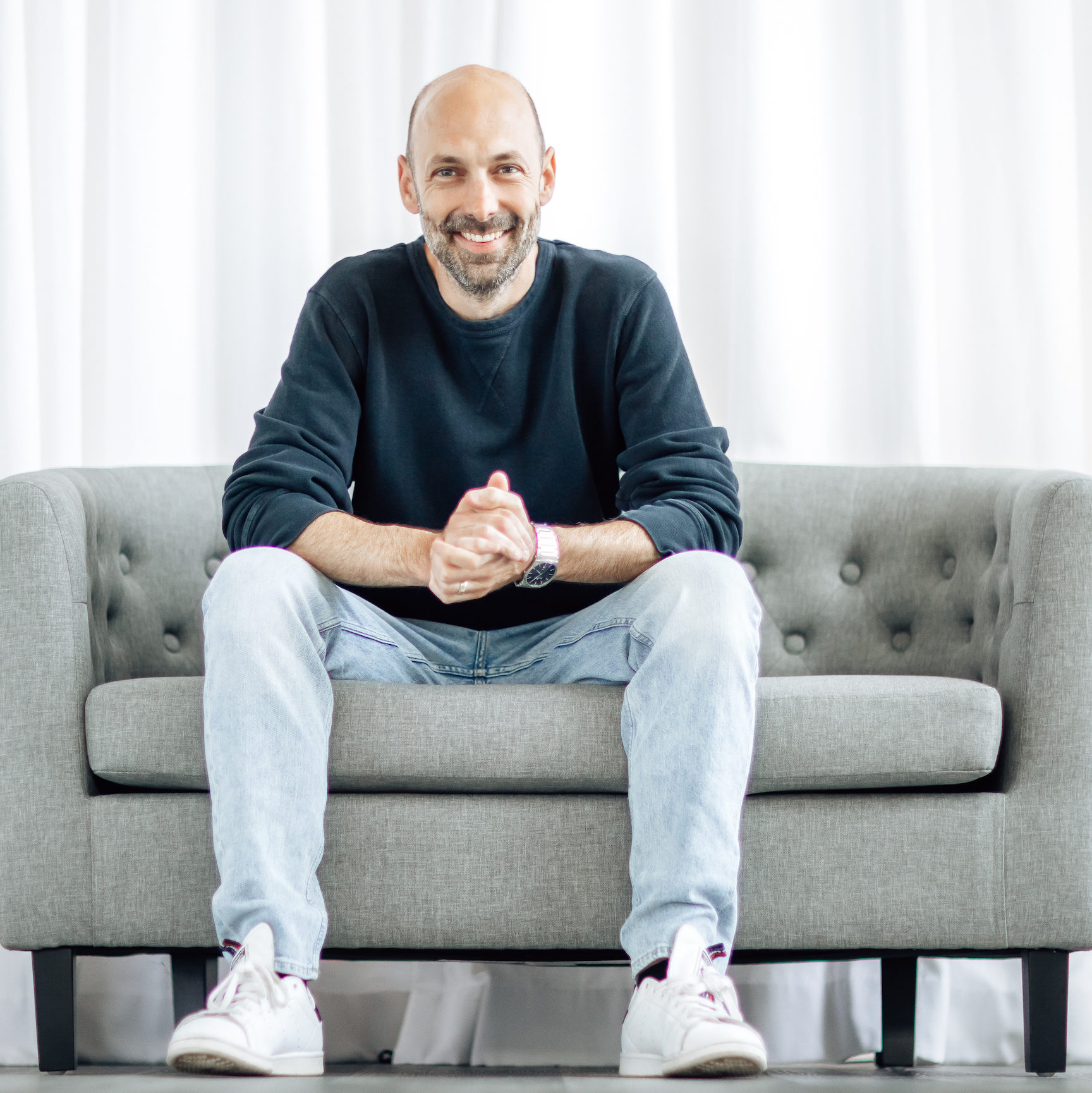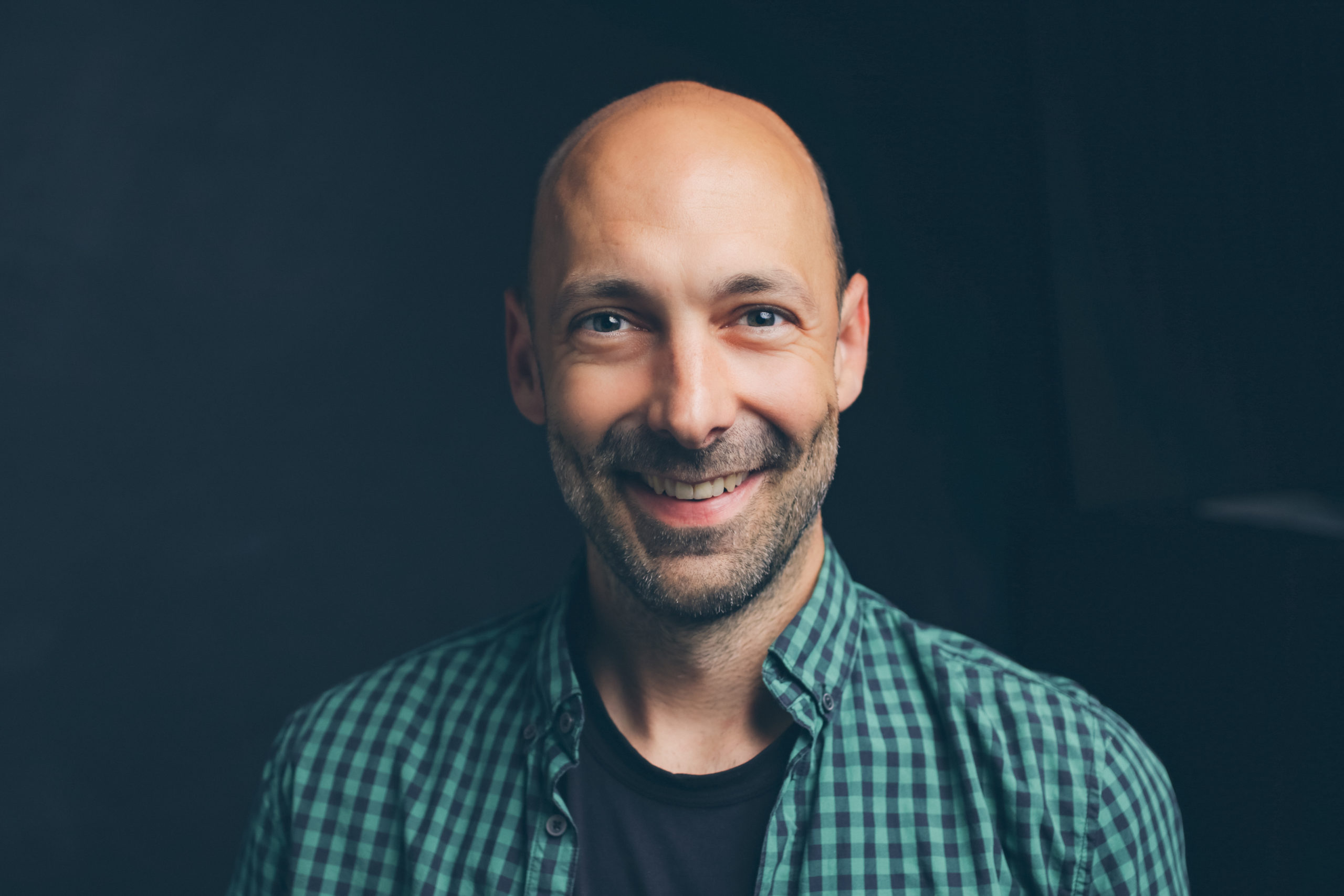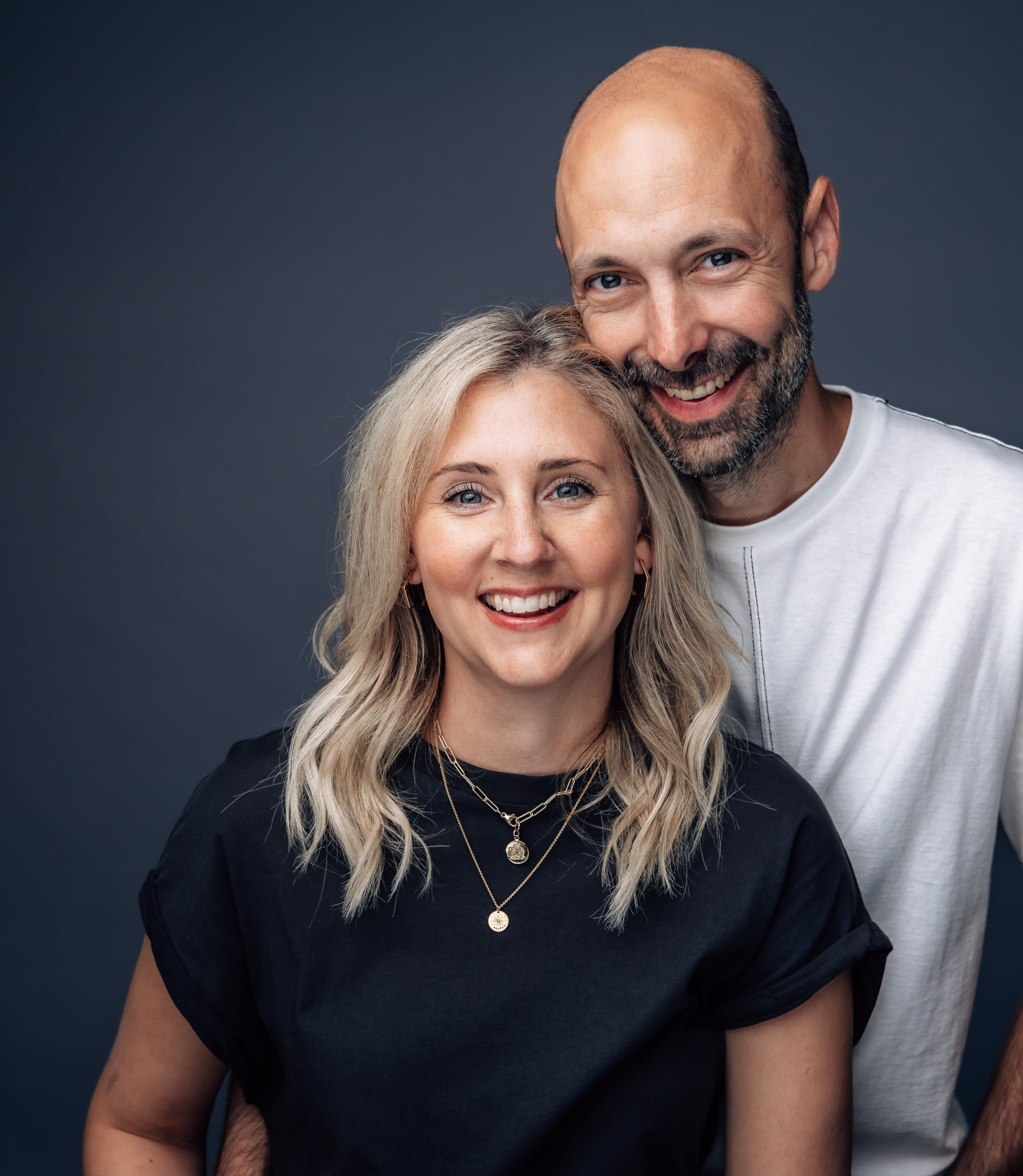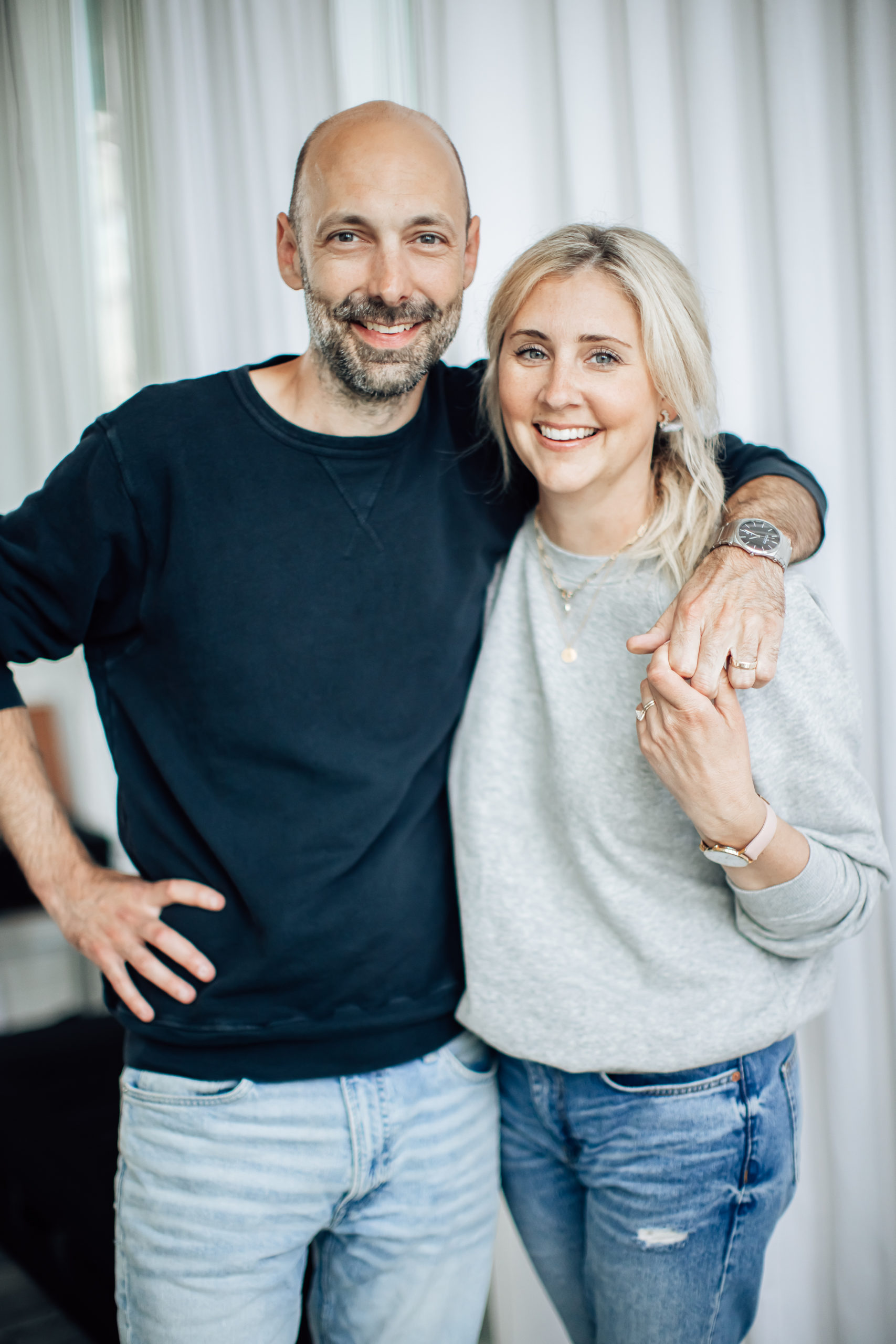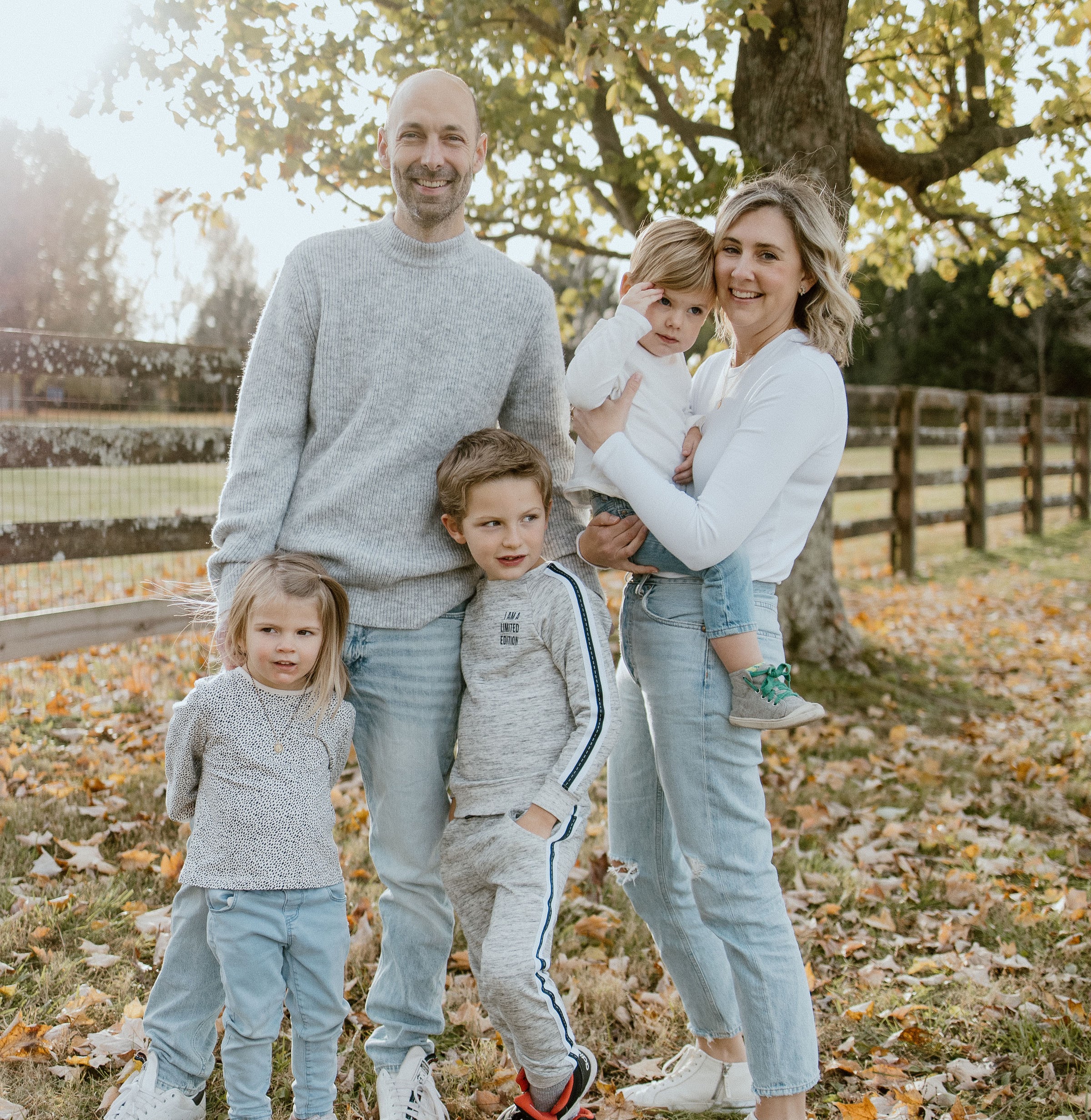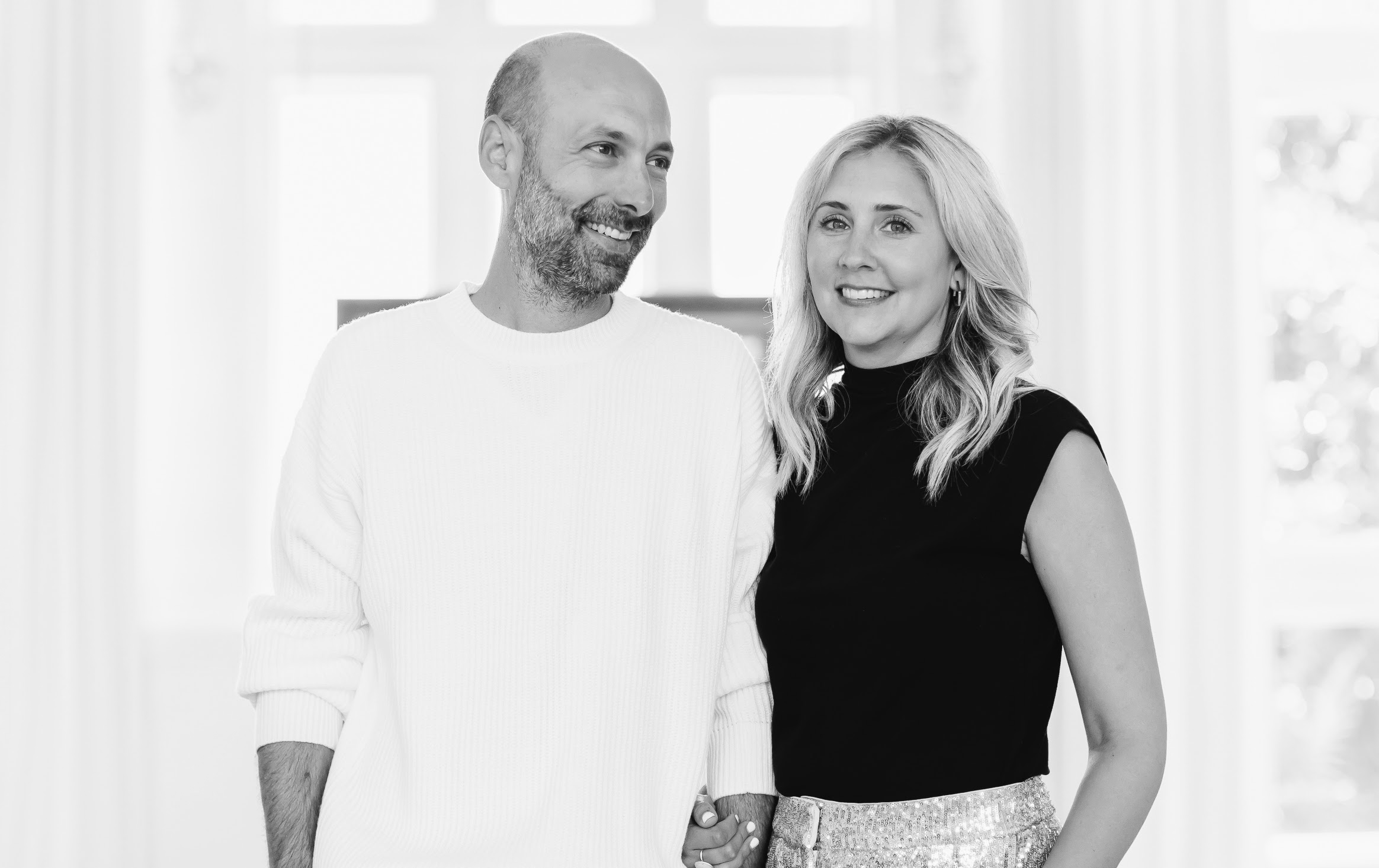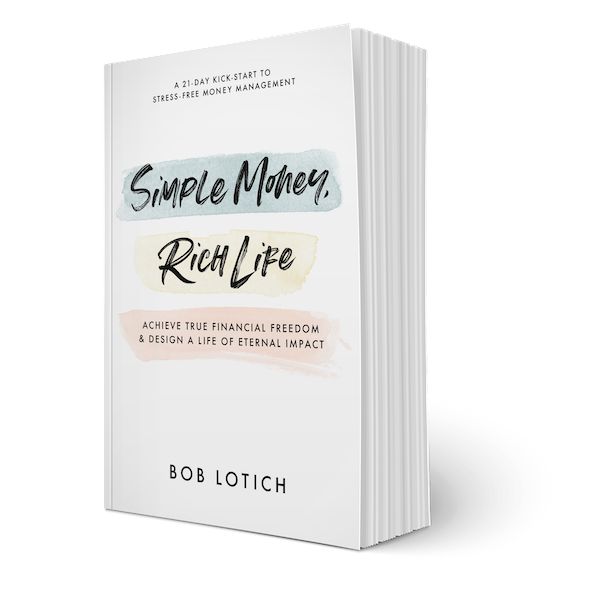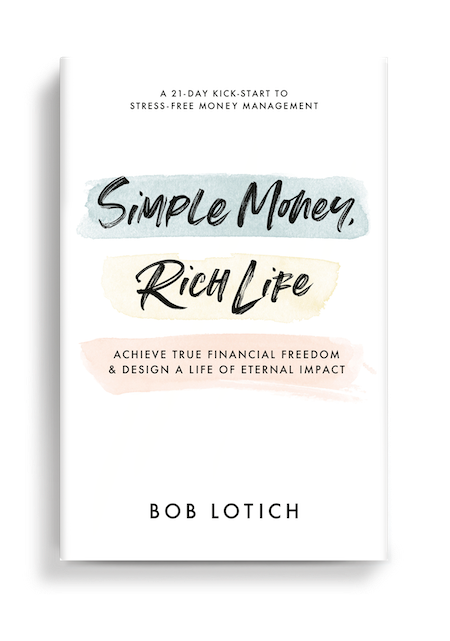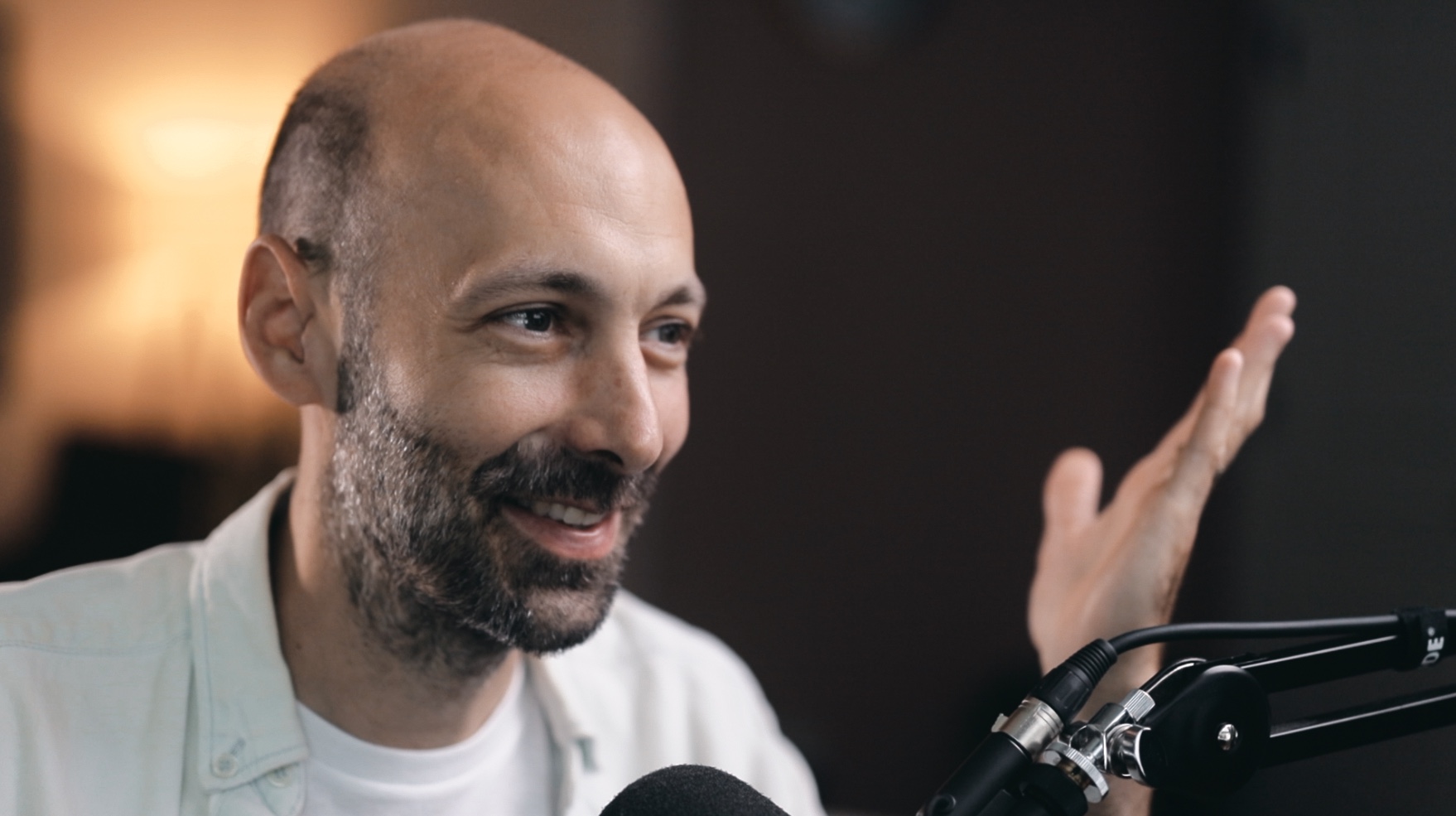
Bob Lotich, CEPF®
Award-winning blogger, Podcaster, and Author of Simple Money, Rich Life
About Bob Lotich, CEPF®
Bob Lotich found himself at his breaking point in his early 20’s overwhelmed by debt and stranded 1,000 miles from home with only $7 to his name. After crying out to God for wisdom and discovering a simpler (and far more effective) approach to money, he reached a level of financial freedom he never dreamed possible: having a paid-off house by age 31 and even reaching a personal goal of giving $1 million by age 40.
For the last 15 years he’s shared his best lessons with over 52 million readers and listeners on his award-winning blog, SeedTime.com and SeedTime Money Podcast.
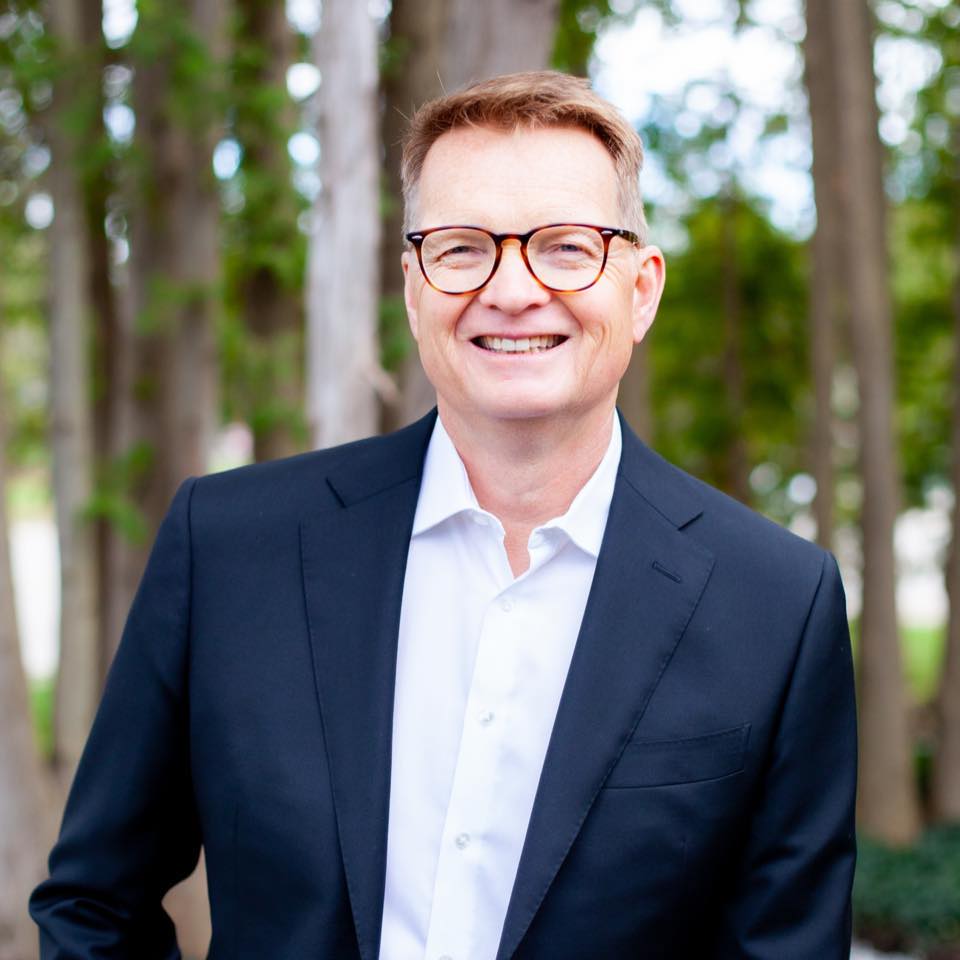
“I love this book. If you’re bored with the plethora of teachings out there about money, saving and giving, or think you’ve heard it all, Bob Lotich will surprise you.”
–Carey Nieuwhof, Bestselling Author of At Your Best
About Linda Lotich
Linda has spent a lifetime perfecting the art of avoiding boring conversations. Though her financial life was a mess (carrying guilt for making bad decisions, and so much shame she didn’t even know how to ask for help) she just prayed it would all work out. And one day she met the man of her dreams (named Bob), and he had no problem taking her mess and creating all the pie charts and spreadsheets.
But as time went on, she began realizing how investing a little time in something she typically found boring, could actually open up the adventure of a lifetime with God!
Pair that with a snack or two and Bob’s simple approach to a typically complicated subject and all-about-fun-Linda became the girl who is ready to talk finances…in a fun way, obviously.

Bob (and Linda’s) Unique Story
Once they combined their financial messes, Bob and Linda spent the next couple years paying off their $46k of debt in their first years of marriage.
Then at age 31 they began “giving their age” as a percentage of their income (31% at the time) and increasing each year. While this should have slowed their progress towards their goal of paying off their mortgage, they found that just 10 months later their mortgage was paid in full.
As they continued to stretch in their giving they reached their biggest financial victory yet: giving away $1 million dollars by age 40.
Now Bob and Linda teach others the principles, mindsets, and specific strategies needed to experience true financial freedom (how to have more money without it having you) in order to make an impact on the world around them.
They’ve been featured in:

Media, Press, Podcast Inquiries:
Contact: [email protected] | (636) 344-0438
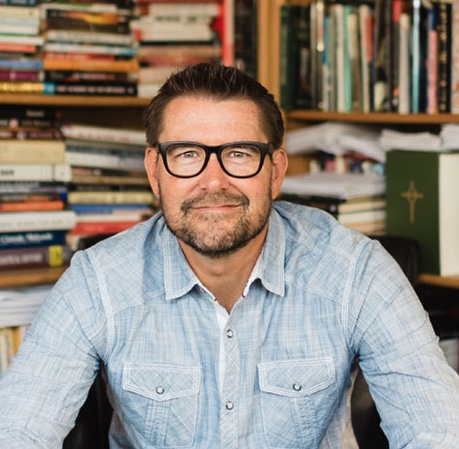
“In Simple Money, Rich Life he’s giving away all of the tips, tricks, and tactics he’s employed to personally overcome $400k of debt and hit his own generosity stretch goal of giving away $1 million dollars. His story is amazing, but it doesn’t have to be unique! This book is full of big steps made in faith and it’s also full of practical, actionable advice to help you reach your own financial goals.”
–Mark Batterson, New York Times bestselling author of Win the Day
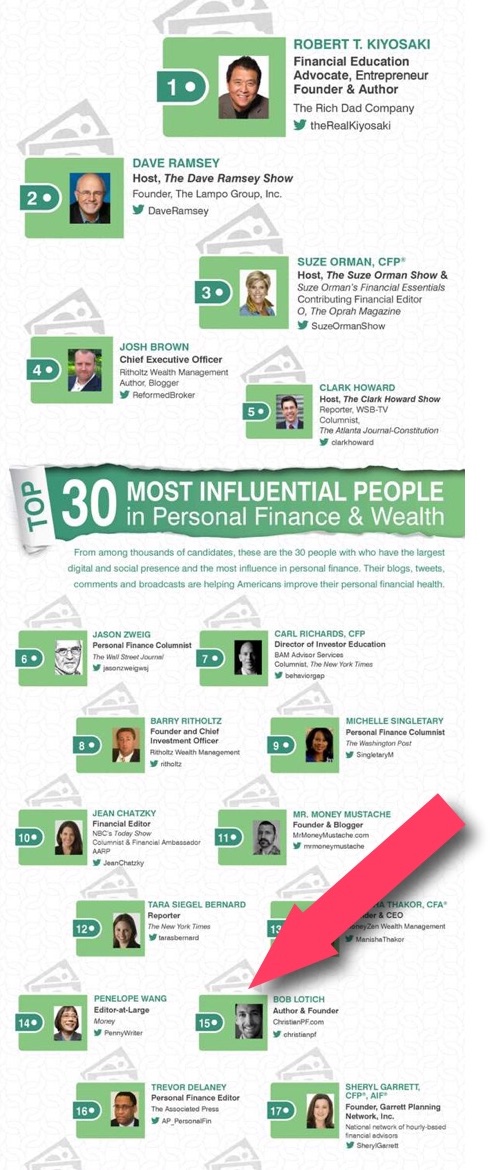
Interview Bob (and Linda)
Bob, or both Bob and Linda are available for podcast, video, phone or print interviews.
They are open to providing quotes or interviews on a variety of financial topics, but most interviews tend to revolve around:
- Why they give their AGE as a percentage (40%) of their income
- How they paid off their mortgage in 3 years (and the lessons learned)
- How Bob and Linda overcame money being a constant point of tension in their marriage.
- Lessons learned from giving away $1 million by age 40
- How they travel the U.S. for free (over 100 flights and hotel nights free in the last 5 years)
- Practical and painless ways to put more money in your pocket
- How he made $2,145 decluttering (in one month)
- Why Bob took a full year off work and how he made it happen
For lots more great topic ideas check out the sample interview questions below.
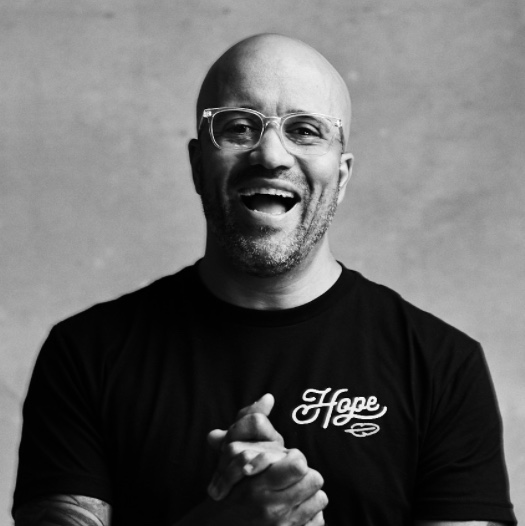
“Bob is uniquely gifted to take a topic that most tend to find overwhelming (money) and actually make it simple. If that weren’t unique enough, he (with Linda’s help) delivers the lessons with grace in a non-judgemental tone that leaves you gently challenged, excited, and inspired with your finances.”
–Carlos Whittaker, Author, Speaker, Podcaster
Bios
Bob Bio #1
Bob Lotich is a financial coach married to a butterfly-chasing spender so he gets it. His new book Simple Money, Rich Life is the operating manual he and his wife Linda (a middle-class couple) followed to pay off over $400k of debt and reach a personal goal of giving $1 million by age 40. He currently lives in Franklin, TN with Linda and their three children.
Bob Bio #2
Bob Lotich found himself at his breaking point in his early 20’s overwhelmed by debt and stranded 1,000 miles from home with only $7 to his name. After crying out to God for wisdom and discovering a simpler (and far more effective) approach to money, he reached a level of financial freedom he never dreamed possible: having a paid-off house by age 31 and even reaching a personal goal of giving $1 million by age 40. For the last 14 years, he’s shared his best lessons with over 50 million readers and listeners on his award-winning blog, SeedTime.com, and SeedTime Money Podcast.
Bob & Linda Bio #1
Bob and Linda Lotich, the dynamic duo behind the award-winning book Simple Money, Rich Life, the SeedTime Money podcast, and the True Financial Freedom course, have dedicated the last 15 years to helping millions discover true financial freedom. What sets them apart from most financial experts is their approach: they lead with grace over judgment and focus on creating hope while washing away the shame that so many carry when it comes to money.
Bob, a Certified Educator in Personal Finance, loves spreadsheets and pie charts just a little too much. On the other hand, Linda has spent a lifetime perfecting the art of avoiding boring conversations. Together, they create a unique learning experience that is far from what you’d expect from typical “financial experts.” In fact, learning from Bob and Linda is more akin to spending time with Chip and Joanna Gaines – informative, engaging, and always entertaining.
With their relatable and compassionate approach, Bob and Linda have become trusted guides for countless individuals seeking to transform their financial lives and discover the joy and freedom that comes with mastering money management.
Bob & Linda Bio #2
Bob and Linda Lotich have spent the last 15 years helping millions discover true financial freedom with their award-winning blog SeedTime.com and SeedTime Money podcast. Unlike most financial experts, they lead with grace over judgment and focus on creating hope while washing away the shame so many carry with money. In their new book Simple Money, Rich Life, they share practical steps to save and earn more money in order to fund your God-given purpose and dreams.
Bob & Linda Bio #3
Bob Lotich is a financial coach married to Linda, a butterfly-chasing high-performance spender. Their new book Simple Money, Rich Life is the operating manual they (a middle-class couple) followed to pay off over $400k of debt and reach a personal goal of giving $1 million by age 40. For the last 14 years, they’ve shared their best lessons with over 50 million readers and listeners on their award-winning blog, SeedTime.com and SeedTime Money Podcast.
Potential Interview Questions:
About “Simple Money, Rich Life”
Your book is called “Simple Money, Rich Life”. Most are not used to money being simple. How do you make it simple?
When Linda and I first got married, I was so excited and came up with this really complicated plan using different apps and tools and she just basically walked the other direction because it was too much for her. But we both saw the importance of getting her involved, so I just kept simplifying. And as I did, she was able to get on board and take ownership, which was a game-changer.
We then created a simple automated money system (which I lay out in the book) that directed our money towards what we valued most and we began effortlessly moving towards our financial goals while providing guilt-free spending for Linda and I.
And here’s the thing that the financial industry doesn’t want you to know – that the most surefire way to financial success isn’t with advanced strategies but just finding a way to do the basics automatically.
And in this book I break down all the most complicated concepts and make them simple, easy, and realistic for anyone to quickly apply them so you can get on with your life.
Can you tell us about the 4 parts to this book?
The inspiration is a 4-part formula that was heavily inspired by a John Wesley quote a read years ago. We seek to earn all we can, save all we can, give all we can, and enjoy it all.
And when you have all 4 parts working together it keeps you financially healthy and balanced while increasing your ability to fulfill your God-given purpose.
For example, earning and saving all you can without the giving all you can component can lead to a hoarding mentality. Or we all know people who hate the work they do, or hate saving, or hate giving, but we believe that we have the opportunity to enjoy all of those activities – and as we do, the whole process becomes easier and more effective.
In the book we take the reader through each section:
The Save section is full of practical suggestions to help you reframe how you spend money and free up hundreds of dollars a month.
And the Earn section will help you significantly increase your earning potential, whether you’re an employee, freelancer, stay-at-home parent, business owner, or anything else.
The Give section is designed to help you see giving in a whole new light. It transforms giving from an obligation into the real adventure of a lifetime that God invites us join Him on. It also provides practical strategies to help you make it more fun than you ever thought possible.
The Enjoy section focuses on how we can enjoy each moment of our financial lives–even the difficult ones.
What’s the simplest thing listeners can do to get started changing their financial life today?
We named the book Simple Money, Rich Life for a reason. So the entire thing is filled with those simple wins that we can get. For anyone who wants to kick the tires a little more, we created a quick FREE 3-day money challenge with 3 of the quickest financial wins you can get from the book: 3DayMoneyChallenge.com.
If you do nothing else other than take this simple challenge, I believe your financial life will forever be changed.
What do you hope readers walk away with after reading Simple Money, Rich Life?
I want people to know a few key things about money that so few do…
- Money is a tool. It shouldn’t be a goal, the source of our joy, or status, or anything else. It is a tool that we can use to fulfill the mission that God has put us on earth for.
- Personal finance isn’t about all the things you say “no” to. You don’t have to live like a pauper to live a life of bold generosity and wild adventure. You can actually live a life of financial freedom where you can be prioritizing the “yes” things God puts on your heart.
- There is no situation too far gone for God. And it is never too late to start. He loves to do the miraculous, but it requires that we trust Him and obey as He leads. When we do, really cool things follow.
Unique Financial Strategies/Beliefs
You tell readers they don’t have to be financial experts to be very successful with their finances. How?
It used to be that you had to be a financial expert or have a lot of money to hire one, but the internet and technology has changed the game. Yet the financial industry is still trying to get us all to believe that only experts can succeed financially. The truth is that it is really just about doing a few key things and finding a way to automating the process, so you reach your financial goals automatically. And it has never been easier than it is today.
You say that you don’t actually have to try and spend less money, but just have to pay attention to what you currently spend and you will automatically spend less?
This is mind-blowing to people who aren’t currently doing this.
Karl Pearson, a 19th-century mathematician, has been credited with first articulating what is now known as Pearson’s Law: “When performance is measured, performance improves.”
This is why keeping a food journal will cause you to eat better – without even trying to eat better. It just happens automatically. And it is the same with our money. When we actually pay attention to how we are spending, it changes automatically. You literally don’t have to try to reduce your spending at all; you simply need to find a way to pay attention to where it is going. We have had students who have said that simply by following this exercise they saved $800/month without even feeling it.
So many money gurus are all about telling people what they can’t do with their money – are you any different?
It is true. I have read over 100 books on this topic at this point and so many of them leave me feeling guilty and like I am failing for not measuring up to some impossible standard.
All while telling me to always say no to avocado toast, or lattes, or to ever actually spending money on something I enjoy.
And that’s why so many people throw in the towel – it is just unrealistic for most people.
For many people cutting the lattes is being “penny-wise and pound foolish”. The key is to evaluate what is really important to you and focus on just a few big wins so you don’t have to worry about the small stuff.
We prefer to cut out the hidden money-wasters that we really don’t care about, so we can actually put more money towards the things we truly value.
You say that strategically picking hobbies can have a long-term impact on your financial health. How so?
Most people develop their hobbies from a young age and never question them for the rest of their lives. And over decades that can be a costly decision.
For example, I began playing golf and watching the St. Louis Cardinals as a young kid. As I began playing golf I noticed I had an aptitude for it, but over the years as I spend many thousands on the hobby, I discovered that while I liked golf I really didn’t love it. But yet I continued to play because my identity was tied up in the fact that “I was a golfer”. And with the Cardinals, I realized that I could still be a “fan” and not spend 500+ hours a year watching every game. That free time could be used to start an Ebay business, where I still had the thrill of “winning”, but with more control over the outcome and with the added benefit of it generating income.
Of course I am not suggesting laying down hobbies you truly love, but rather to make an honest evaluation of them.
You paid off your house in 3 years, can you tell us what advice you have for those trying to pay off debt?
Work with God on it. As the saying goes, work as if it all depends on you, but pray as if it all depends on God.
I find that very few people actually do both. They either attempt to do it in their own strength or they don’t actually even try, but just want God to make it all go away. I believe we have an unfair advantage when we do both. When we apply the natural steps (like spending less, picking up a side hustle, etc) as well as praying for the supernatural. And in our lives, as we have done both, we have seen some pretty fantastic miracles happen.
We can get into the practical nuts and bolts of how to speed things up, but by far the biggest impact came from doing our part and allowing God to do His.
There are some financial gurus who think that credit cards are evil, and you guys don’t at all – why is that?
Credit cards are simply a financial tool. They aren’t any more evil than mortgages or student loans are. Now I don’t like any debt and would love to see everyone 100% debt free, because it feels really great, but at the end of the day it is a tool to help you accomplish a goal.
The credit card (as a tool, just like a hammer) doesn’t cause harm, it is how it is used. And no I am not going to let my 2 year old run around with my hammer, and in the same way, you have to be honest and know yourself. If you are hurting yourself by using them, then get rid of them. We had 7 years of our marriage where we didn’t use them because we couldn’t control our spending.
But I believe that if you have a spending problem, there is a root cause beyond that. Maybe it’s lack of contentment, comparison with others, greed, etc. And while eliminating credit cards may limit the damage you can do (and I am all for putting systems in place to help us succeed), at the end of the day the credit card isn’t the problem. It’s the root cause that is the real problem and if that isn’t dealt with it will manifest in other ways in your life. Just like a nasty weed that you cut down, when you don’t remove the root it keeps popping up.
What do you think about seeking financial independence or becoming debt-free?
They can be great goals or they can become idols in our lives. With money it is always about the heart. So I have found asking myself 2 questions has been helpful in determining the true nature of my heart.
- Why do I want to achieve this goal? Whatever it is. If it’s paying off debt, if it’s saving for retirement, if it’s saving for my college or my kid’s college, if it’s becoming financially independent, if it’s retiring early, what is the true reason why I want it? Sometimes that motivation isn’t what it should be. Sometimes my honest answers have been that I wanted to get to the point where I didn’t need to depend on God anymore – where I had enough money in the bank account that I don’t “need” God. When I discovered that in my heart, I had to take it to God and allow Him to work that out of me.
- What if I never reach this goal, can I be content in God? Goals are great as the drive and propel us forward, but when we get to a point of desiring something (anything really) so deeply that we cannot be content in Him without it, then we have a problem.
You have an interesting spin on your Net Worth. Tell us more about it?
In our community we prefer to use the term Assets Under Management or AUM for short. Here’s why:
- It is pretty insulting to even imply that any human beings “net” (or total) worth can be summed up with a number. And as believers a lot of us have a difficult enough time understanding our worth and value and keeping our identity in Christ.
- Next, when we understand that everything we have is God’s and is simply entrusted to us to manage, it just seems like a more fitting term. And it helps us stay reminded of whose money and assets are in “our” accounts. And continually being reminded of that makes it easier to obey Him when He asks us to do something other than what we had planned with some of that money.
The Adventure of Giving
You give 40% of your income each year – how and why did you start that?
About 9 years ago, on a spring morning, I was walking in this secluded field that I would often go to to pray.
That particular morning, I was praying about some of the big financial goals that I had; the biggest one being that I longed to be 100% debt-free and get our mortgage paid off.
I had a plan in place that if everything went perfect would help us get our house paid off in about 3 or 4 years. Which was amazing, but like a typical American I wanted it faster – so that’s what I was praying about.
At this point Linda and I had been tithing for years and even gave a little extra sometimes. In my mind we had reached the “finish line” of Christian giving.
And, just like a Pharisee, I had my religious pride with it. I had given God his 10% and I had 90% to do with what I wished.
And if I am honest, I kind of thought that God owed me. I had checked the “good” Christian box by tithing, and now He should give me all the stuff I want.
But what happened that morning high up on the hill forever changed my understanding of giving.
As I was praying and making my case for why God should help us pay off our house faster, he spoke to my heart. And though it wasn’t His audible voice, He said, “If you really want me to move on your finances, I want you to begin giving your age as a percentage of your income.”
Since I was 31 at the time, this meant 31% of our income. I stopped in my tracks – wait what? Is this even possible?
It made no sense. Who does this? And I don’t even know if we will be able to pay the bills and feed my family if we do this.
Yet here God was, –not twisting my arm or using guilt or shame–but gently inviting me to go on an adventure with him. Asking us to increase our giving from a little over 10% to 31%.
It was a scary thought. We had spent years dreaming about being 100% debt-free. And it almost seemed like a cruel joke. Instead of helping to get our mortgage paid off, it seemed like He was asking us to put our debt payoff plan on hold and give instead. It made no sense.
In this moment I was reminded of one of my favorite verses, Romans 8:28 NLT “And we know that God causes everything to work together for the good of those who love God and are called according to his purpose for them.”
And as usual, it brought peace to my heart as I adjusted my thinking to remember that God wouldn’t ask us to do this unless there was something really cool attached to it.
I have found that God isn’t into just giving us things to do, just to punish us or make our lives difficult. It always is Him doing something awesome, inviting us to participate in it (in this case through giving), and we just can’t see how it is going to work out yet.
So I took it to Linda to see if it passed the wife-test, and sure enough, in her bold faith, she got right on board. So with that we laid down the goal of the paid-off house and set off on this crazy journey of ‘giving our Age’ – 31% at the time.
It shouldn’t have been a surprise, but after we started doing this, by God’s grace, within just 10 months we were able to pay off our mortgage and become 100% debt-free.
In our natural minds, this didn’t make any sense to us. It looked like we were going in the opposite direction of our goal.
But following God helped us reach our financial goal so much faster than we could have dreamed, when logic says it should have held us back. And reaching that goal really was just the icing – the far better part was all the amazing God stories that we got to participate in through that giving.
By his grace we have been able to continue this “give your age” thing for the last 9 years and hope to keep it going to age 90.
You gave away $1 million by age 40? What did you learn in that process?
- Big things start small. 15 years ago we had this goal and we began tracking every dollar we gave and kept a running total (we called it our ‘Net Given’). So we’d buy lunch for a friend and write it down. Then we’d buy a Christmas gift for a co-worker and we’d write it down. We’d give money to our church and we would write it down. And slowly that number grew each year. But here is the thing, if we hadn’t been tracking it, I am sure we wouldn’t have any idea that we achieved that goal.
- I tend to believe that God in really interested in helping us achieve goals that line up with His will. It’s kind of like riding a bike when the wind is at your back instead of a strong headwind.
What tips do you have for making giving easier and more fun?
The “Seed” account
If you have ever been given money to buy something for someone else (supplies for a party, something for your boss, etc) where you weren’t spending your own money, you know it changes things.
It’s easy to spend someone else’s money, right? That’s the key here. We created a separate savings account called the “Seed” account where for the last 14 or so years we have deposited money into each month. And once we do, that money is no longer ours. It is set aside specifically for the purpose of giving wherever the Lord leads. So now when that family from church had their house burn down and we wanted to immediately be able to give to them, we were able. The money was just sitting there waiting to be spent. Before the “Seed” account, we would have been having to make a decision of whether we should buy groceries or shoes for the kids or give, and this eliminated that conflict.
It doesn’t make sense how this seemingly small thing makes giving so much easier, but it really does.
Other
Money was a big point of contention in your marriage. How did you improve it?
Linda and I have completely different natural spending habits. Like most couples, we have had our fair share of money fights. I’ll let you in on a little 10-minute tweak that reduced our money fights by about 95%.
We created separate spending money accounts. This sounds like not a big deal. But if money is a point of contention in your marriage – I promise you, if you do this simple thing it is going to be huge. Here’s why. So many of our fights revolved around one of us spending on something that the other didn’t view as the top priority at the moment, “you bought a drill when that’s all the money we have for groceries this week?”. Money fights like these are one of the most common, and this simple tweak eliminates it. Because now, I don’t care about how she spends the money in her account, because it doesn’t affect me. And the same for her. I can spend the money in my account on anything I want, without any judgment because it doesn’t affect the grocery budget, her, or anything else.
You say that as Christians, we should measure financial success not by what we accumulate but by what we give – tell me more.
The world tells us that financial success is in financial independence, having a couple million in your Roth IRA or 401(k), having a vacation house, or retiring at 40. And while there isn’t necessarily anything wrong with those goals, if we’re actually eternal beings who are on the earth only for a breath of time, it seems far smarter to view financial success through the lens of eternity rather than storing up as much wealth as possible on earth.
And if that’s the case, then we should stop defining financial success the way the world does: by how much we accumulate. As Christians, we should measure financial success not by what we accumulate but by what we give.
What do you say to someone who might be listening who thinks they don’t have time to devote to improving their finances?
It takes far less time and is far easier to be successful than you probably realize. You don’t have to read 100 money books to make progress; you just need to do a few simple things right and ignore all the other noise.
And to put that in perspective, we probably spend less than 20 minutes each month on our finances.
And the truth is, once we started trying to improve our financial situation, we actually spent way less time with less stress than we were before. We are all making decisions about our finances. It’s just a matter of whether we are proactive or reactive. And once we began being pro-active, we weren’t having to always check to see if we had enough in our bank to buy groceries this week or robbing-peter-to-pay-paul type of stuff that is stressful and takes up time. So in actually putting forth a little effort, we found that we spent far less time – and that tends to be the case for a lot of people.
How does your approach differ from the prosperity gospel?
Following Jesus for how He can prosper us is kind of like marrying someone for money. It’s a shell of a relationship. Jesus is the true prize, and God loves us too much to let us settle for anything less. And yes, like any good father, God loves to bless His kids, but chasing the provision rather than the Provider is a mistake. Jesus is always our greatest gift and treasure, far greater than any financial blessings that may come our way.
But on the other hand, when our hearts are right, we have the opportunity to use the money we have been entrusted with to fulfill what God has called us to. And this is where things really get exciting. Because just like in the parable of the talents, we have the opportunity to waste and squander our money on stuff that doesn’t really matter, or we can intentionally make the most of what God has given us.
And I want to be someone who is faithful with the little, so I can be entrusted with more.
You say we are managers and not owners of our money – can you explain?
As God’s stewards, all we have is His. Our stuff, our bodies, our time, our kids, and, yes, even our money. It’s His money that just happens to be sitting in our accounts right now as we wait for the word on how to use it.
I’ve come to think of it like this. Say you hired me as your financial coach and we meet weekly during lunch. One week I ask you to grab lunch for us from Chipotle, my treat. I Venmo you $100 to cover it. We both understand that it’s my money and I’m asking you to do something specific with it. Right?
If the total for lunch that week was $25, then I might tell you to hang on to the change ($75) to get next week’s lunch. You now have $75 of my money in your Venmo account. Is it your money because it’s in your account? No.
I could change my mind, though. I might ask you to use that excess money to do something completely different from my original intent. I might direct you to buy a burrito for the homeless guy on the road, buy our lunch for the next three weeks, or even spend it all on yourself.
It doesn’t really matter what I ask you to do with the $75 in your account, because it’s my money. You’re merely holding it in your account and waiting on my instruction.
When we understand that everything we have comes from God, it’s a lot easier to send it where it needs to go. Money can just flow through us because we know it’s not all purposed for us. That’s just one way we get to be God’s hands and feet on earth.
Why do you think money is an important topic for Christians?
I really believe that we have to see money just simply as a tool. Our society has made money the goal to be sought above all else, and that just doesn’t sit right with me. I believe money is a tool that we can use to do the work God has for us to do. When we shift our mind to it being a tool, a whole new world of opportunities open up to us.
Podcast/Media Interviews
Other Podcast/Media Interviews
- Focus on the Family
- Proverbs 31 Podcast
- Crown Stewardship Podcast
- Family Life Today
- The Carey Nieuwhof Leadership Podcast
- His and Her Money Podcast
- Rich by Intention Podcast
- Couple Money Podcast
- Bringing Her Hope Podcast
- The Naked Marriage with Dave & Ashley Willis
- Family Life Radio
- Afford Anything Podcast
- Famous at Home Podcast
- Coffee and Bible Time
- Crazy Happy Podcast
- The Christian Mindset Coach
- Good Money with Derrick Kinney
- Design your Dream Life with Natalie Bacon
- The Crystal Paine Show
- Eternal Leadership Podcast with John Ramstead
- The Dad Edge Podcast
- Kingdom Driven Entrepreneur
- Moms Like Us
- Anne Voskamp guest post
- RedState
- CBN/700 Club: Helping You Build Wealth from Personal Experience
- Dad Tired Podcast
- The James Quandahl Show
- Guys Like Us Podcast
- For Eternity and Until
- She Lives Fearlessly
- Streams of Income
- Agape Invests
- IMbetween Podcast
- The Story Box
- My wife quit her job Podcast
- MapleMoney Show
- Kingdom Driven Entrepreneur
- The Christian Money Podcast
- She Works His Way
- Win Today with Christopher Cook
- Faith Inspired
- FIT in Faith Podcast
- Earn & Invest with Doc G.
- Interview with CBN 700 Club
- Debt-Proof Living with Mary Hunt
- The Benefits of Taking Time Off: Interview with Bob Lotich (Goins, Writer)
- How and Why I Took a Mini-Retirement, with Bob Lotich (Afford Anything)
Website Features
- (Aol.) 20 Personal Finance Influencers You Should Follow on Twitter
- (Inc.) Managing Your Personal Finances as an Entrepreneur: 14 Tips from Leading Experts
- (Forbes) Here is How 19 World-Famous Financial Experts are Investing their Money Today
- (Kiplinger) 10 Top Money and Finance Blogs You Should Read
- (CBN) Making Money From Home
- (Mint) Expert Interview with Bob Lotich on Giving More for Mint
- (Huffpost) What the Top 30 Personal Finance/Wealth Influencers Know That You Don’t
- (Rapt Interviews) Bob Lotich
- (Red State) Financial author says families should stock up
- (Ann Voskamp) How do you let go of trusting money
- (BeliefNet) Bob Lotich on Biblical money management
